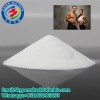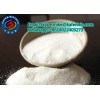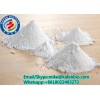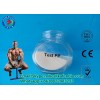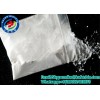Email/Skype:mike@kafenbio.com
Whatsapp:+8618022403273
Parkinson Disease Treatment CAS 104632-25-9 Pramipexole Dihydrochloride Monohydrate
Basic info:
Pramipexole Dihydrochloride Monohydrate
CAS: 191217-81-9
Other Names: (S)-2-Amino-4, 5, 6, 7-Tetrahyd
Mf: C10h17n3s. 2(HCl). H2O
Mw: 302.26
Appearance: Appearance White Crystalline Powder
Purity: 99.5%
Grade: Medicine Grade
Quality Standard: Quality Standard Ep7.0/USP35
Product Function:
General introduction: Pramipexole dihydrochloride is a non-ergoline dopamine agonist indicated for treating early-stage Parkinson's disease (PD) andrestless legs syndrome (RLS). It is also sometimes used off-label as a treatment for cluster headache and to counteract the problems with sexual dysfunction experienced by some users of the selective serotonin reuptake inhibitor (SSRI) antidepressants. Pramipexole has shown robust effects on pilot studies in a placebo-controlled proof of concept study in bipolar disorder. It is also being investigated for the treatment of clinical depression and fibromyalgia.
Product Indications:
Parkinson's disease is a neurodegenerative disease affecting the substantia nigra, a component of the basal ganglia. The substantia nigra has a high quantity of dopaminergic neurons, which are nerve cells that release theneurotransmitter known as dopamine. When dopamine is released, it may activate dopamine receptors in the striatum, which is another component of the basal ganglia. When neurons of the substantia nigra deteriorate in Parkinson's disease, the striatum no longer properly receives dopamine signals. As a result, the basal ganglia can no longer regulate body movement effectively and motor function becomes impaired. By acting as an agonist for the D2, D3, and D4 dopamine receptors, pramipexole may directly stimulate the underfunctioning dopamine receptors in the striatum, thereby restoring the dopamine signals needed for proper functioning of the basal ganglia.


